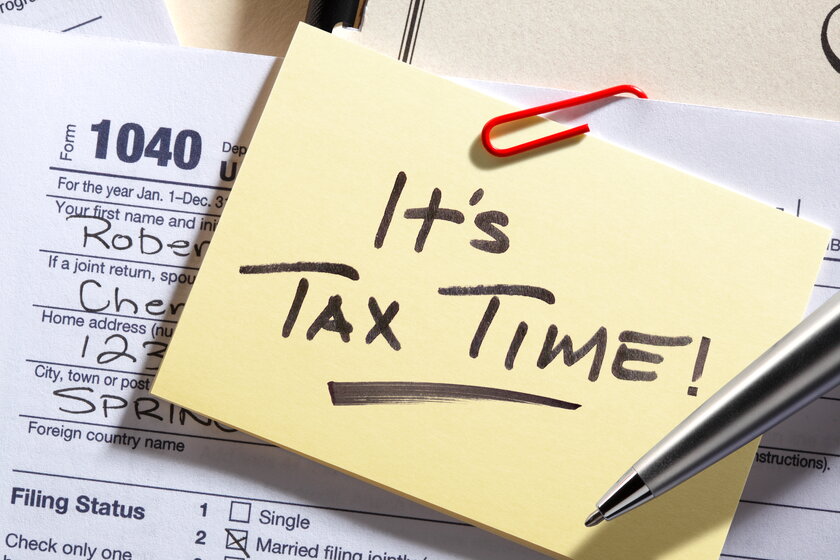Small Business Tax Filing 2025: What You Need to Know
Streamline Your Small Business

Avoid Costly Tax Mistakes: A 2025 Tax Guide for SMEs
As the 2025 tax filing season begins, small business owners must be aware of important deadlines, tax deductions, IRS updates, and tax filing options to ensure compliance and maximize their tax benefits. This guide will cover essential aspects of tax season 2025, helping businesses stay organized and avoid costly mistakes.
1. Tax Filing Options for Small Businesses
The IRS encourages small business owners to file electronically for faster refunds and fewer errors. Here are some filing options:
a. IRS Free File
- Available to businesses and individuals with an income of $84,000 or less.
- Use IRS Free File Fillable Forms for manual entry.
- Deadline: October 15, 2025 for extended returns.
b. IRS Direct File
- Free online filing service available in 25 participating states.
- Available in English and Spanish.
- Live chat support from IRS representatives.
c. Tax Professionals
- Over 50% of taxpayers use a certified tax preparer.
- Ensure your tax preparer has a Preparer Tax Identification Number (PTIN).
- Use the IRS Directory of Tax Preparers to find a qualified professional.
d. Volunteer Tax Assistance (VITA)
- Available to businesses making $67,000 or less.
- Offers free electronic filing assistance.
- Note: Direct deposit refunds are issued faster. Paper refund checks are 16 times more likely to have issues like being lost or stolen.
2. Understanding Estimated Taxes for 2025
If you expect to owe $1,000 or more in taxes, you must pay estimated taxes quarterly:
- Q1 (Jan - Mar): Due Date – April 15, 2025
- Q2 (Apr - Jun): Due Date – June 17, 2025
- Q3 (Jul - Sep): Due Date – September 16, 2025
- Q4 (Oct - Dec): Due Date – January 15, 2026
To calculate estimated taxes:
- Use Form 1040-ES for individuals.
- Use Form 1120-W for corporations.
3. IRS Tax Credits Available for Small Businesses
Take advantage of available tax credits to reduce your overall tax liability. Key Tax Credits for Small Businesses in 2025 are:
- Employee Retention Credit (ERC) – For businesses that retained employees during economic hardships.
- Work Opportunity Tax Credit (WOTC) – For hiring veterans, ex-felons, and long-term unemployed individuals.
- Research & Development (R&D) Credit – For companies investing in new technology, software, or innovation.
- Small Employer Health Insurance Credit – If you offer healthcare benefits to employees.
4. IRS Tools & Resources for Small Businesses
The IRS offers multiple tools to assist small businesses:
- Interactive Tax Assistant (ITA) – Helps determine filing status, income taxability, and credits.
- IRS Online Account – Manage tax payments, transcripts, and refund status.
- Where’s My Refund? Tool – Check refund status via IRS.gov or the IRS2Go app.
- IRS Taxpayer Assistance Centers (TACs) – In-person help for complex tax issues.
Tip: Avoid tax scams by verifying IRS communications and avoiding ghost preparers who do not sign tax returns.
5. Tax Scams & Identity Theft Prevention
Tax season attracts scammers who try to steal business information. Be cautious of:
- Phishing Emails – Fake IRS emails requesting sensitive tax data.
- Fraudulent Tax Preparers – Avoid preparers who promise big refunds or don’t sign your return.
- Fake IRS Calls – The IRS never demands immediate payments over the phone.
If you suspect identity theft:
- File Form 14039 (Identity Theft Affidavit).
- Monitor your IRS Online Account for unauthorized activity.
- Report scams to phishing@irs.gov.
Tax Season 2025: Essential Deadlines and Deductions
1. Key Tax Deadlines for Small Businesses in 2025
Staying on top of key tax deadlines is crucial for small businesses of different legal forms—whether sole proprietorships, LLCs, S-corporations, or C-corporations—to avoid penalties and ensure smooth tax filing; here are the important dates for the 2025 tax season:
Federal Tax Deadlines
- January 27, 2025 – IRS begins accepting 2024 tax returns.
- March 15, 2025 – Deadline for S-corporations and partnerships to file Form 1120-S or 1065.
- April 15, 2025 – Deadline for sole proprietors, single-member LLCs, and C-corporations to file taxes.
- June 17, 2025 – Q2 estimated tax payments due for self-employed individuals and businesses.
- September 16, 2025 – Extended deadline for S-corporations and partnerships.
- October 15, 2025 – Extended deadline for sole proprietors, LLCs, and C-corporations.
Tip: If you need extra time, file for an extension using Form 4868 (individuals) or Form 7004 (business entities) before your original deadline.
2. Small Business Tax Deductions for 2025
To reduce taxable income, small businesses should take advantage of the following deductions:
Common Small Business Deductions
- Home Office Deduction – If you use part of your home exclusively for business, claim $5 per square foot (up to 300 sq. ft.).
- Startup Costs – Deduct up to $5,000 in eligible expenses for launching a new business.
- Business Meals – 50% of qualifying meal expenses are deductible.
- Vehicle Expenses – Choose between the standard mileage rate ($0.67/mile for 2024) or actual vehicle expenses.
- Office Supplies & Equipment – Deduct printers, computers, software, and office furniture.
- Advertising & Marketing – Costs related to website creation, social media ads, and promotional campaigns.
- Health Insurance Premiums – Self-employed individuals can deduct their health insurance premiums.
- Retirement Plan Contributions – Contributions to SEP IRA, SIMPLE IRA, or 401(k) plans are tax-deductible.
- Depreciation & Section 179 Deduction – Deduct the full cost of business assets (like vehicles or equipment) upfront.
Tip: Keep detailed records of receipts, mileage logs, and business expenses to support your deductions.
photo credit:
iStock.com/DNY59



